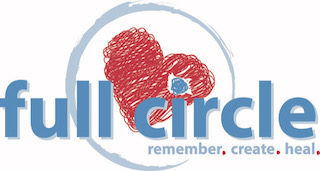By: Kristen Emerson, LCSW, Bon Secours Bereavement Center, Guest Blogger
Grief is unique for each person, but sometimes themes emerge for different types of loss. Read below for information specifically for young adults after a loved one’s death.
Themes that are relevant for grieving young adults:
- Bittersweet milestones. Young adults experience significant life events in rapid succession compared to other life stages. While peers are excited about celebrations (such as graduations, weddings, or new careers), grievers typically feel sadness or bittersweet emotions about facing milestones without the deceased loved one.
- Conflicted emotions about changing family dynamics. Often young adult grievers face a tension between wanting to spread their wings and fly back to the nest. It is appropriate in this developmental stage to explore independence, but family dynamics shift surrounding a death, which may require responsibilities (or just a longing to be) back at home.
- Lack of peer support. Facing a loved one’s terminal illness or death forces young people to mature quickly, which likely places the griever out of sync with peers. Friends are lacking in empathy skills because they can’t relate to a profound loss; this often exaggerates the griever’s feelings of being misunderstood or lonely.
- Sense of vulnerability. When grieving a death, young adults often lose their safety net, which may involve a loss of financial stability or make it extra challenging to plan a future. Their sense of invincibility is shaken as they face mortality in new ways. They may be stretched to balance work, school, and caregiving; face difficult questions about spirituality, identity, or decision making; or explore what can help bring a sense of safety in the midst of countless transitions.
Helpful coping strategies for young adults:
- Prioritize finding peer grief support locally.
- Helpful local resources: Grief centers and hospice agencies can provide referral information.
- Helpful national resources include: The Dinner Party, Actively Move Forward, Modern Loss, and What’s Your Grief. Follow them on social media.
- Limit substance abuse. Escaping pain with alcohol or drugs is socially acceptable at that life stage yet is likely just a method to avoid the actual feelings of loss. Substance abuse does not help promote healing but often leads to other problems.
- Explore rituals to honor the deceased on special days, such as wearing the deceased’s jewelry, making a beloved family recipe, or writing a letter to the loved one.
Specific examples by young adults – ways to feel connected to the loved one for milestones:
- A graduate took a picture in her cap and gown while she was holding a giant picture of her deceased loved one.
- One young man got a memorial tattoo with a meaningful symbol that reflects his friendship with a deceased friend.
- A bride incorporated her mother’s necklace into her bouquet and visited the cemetery a few days prior to the wedding.
Ways others can support grieving young adults:
- Set a reminder on your calendar or phone for special dates (such as the anniversary of when the person died), then reach out to tell the griever that you are thinking of the loss.
- Ask if the griever wants to honor the bereaved in a specific way for special milestones.
- Keep sharing stories about the deceased loved one with others.
Helpful handout: Tips for Young Adults Grieving a Death by the Dougy Center https://www.dougy.org/assets/uploads/Tips_for_Young_Adults_Grieving_a_Death.pdf

